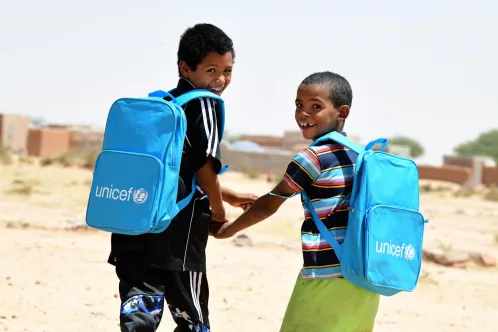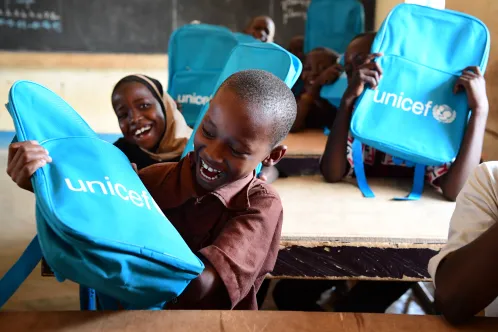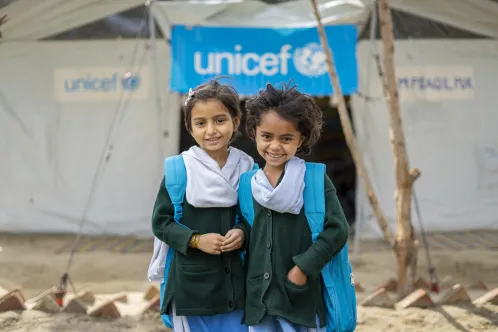Removing barriers to girls’ education
Worldwide, 129 million girls are out of school. In countries affected by conflict, girls are more than twice as likely to be out of school than girls living in non-affected countries.
Barriers to girls’ education include poverty, child marriage and gender-based violence. In some places, schools do not meet the safety, hygiene or sanitation needs of girls. In others, because of teaching practices where boys are favoured, gender gaps in learning and skills development occur.
UNICEF is working with communities, governments and partners to remove barriers to girls’ education and promote gender equality in education, even in the most challenging settings.
Gender equality in education empowers all
Investing in gender-equitable education empowers every child:
- It promotes the development of essential self-management, negotiation and critical thinking skills;
- It strengthens economies, reduces inequality and contributes to more stable, resilient societies;
- It allows both girls and boys the opportunity to fulfil their potential.
Gender-equitable education systems can help reduce school-related gender-based violence and harmful practices, including child marriage and female genital mutilation. Girls who receive an education are less likely to marry young and more likely to lead healthy, productive lives.
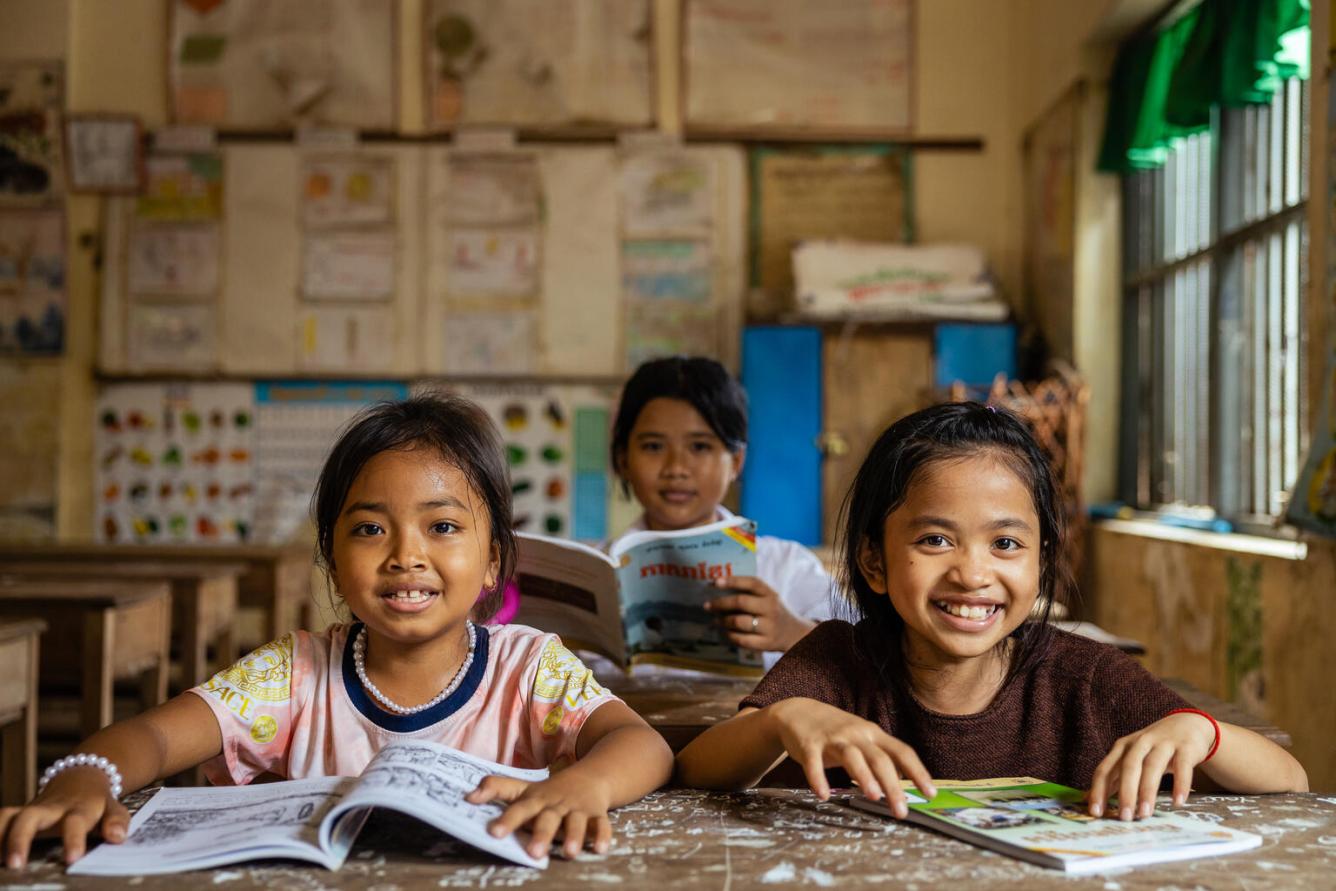
UNICEF’s work to promote girls’ education
UNICEF works with communities, governments and partners to promote gender equality and eliminate barriers to girls’ education. We prioritize efforts that enable all girls to complete secondary education and develop the knowledge and skills they need for life and work, such as:
- Tackling discriminatory gender norms and harmful practices;
- Ensuring national education plans and policies prioritize gender equality;
- Helping schools use assessment to eliminate gender gaps in learning;
- Focusing on teacher training and gender-responsive teaching methods;
- Removing gender stereotypes from learning materials;
- Addressing other obstacles, like distance-related barriers to education and menstrual hygiene management in schools.
Inclusive construction helps keep girls in school
UNICEF’s construction projects around the world aim to reduce the key barriers to girls’ education such as building gender-specific water, sanitation and hygiene facilities, creating safe learning environments and reducing school travel distances.
Gender-specific bathrooms in Syria
In Syria where one in three schools have been destroyed, damaged or repurposed, children often travel long distances to attend a school that is still operational. Many classrooms are overcrowded and do not have adequate water and sanitation facilities.
UNICEF has worked with the Ministry of Education since 2018 to rehabilitate 210 schools across Syria. In these schools, UNICEF has helped restore classrooms, install drinking water stations and build gender-specific sanitation facilities. The construction of gender-specific washroom and sanitation facilities has allowed girls to continue learning by reducing the time they spend out of school when menstruating.
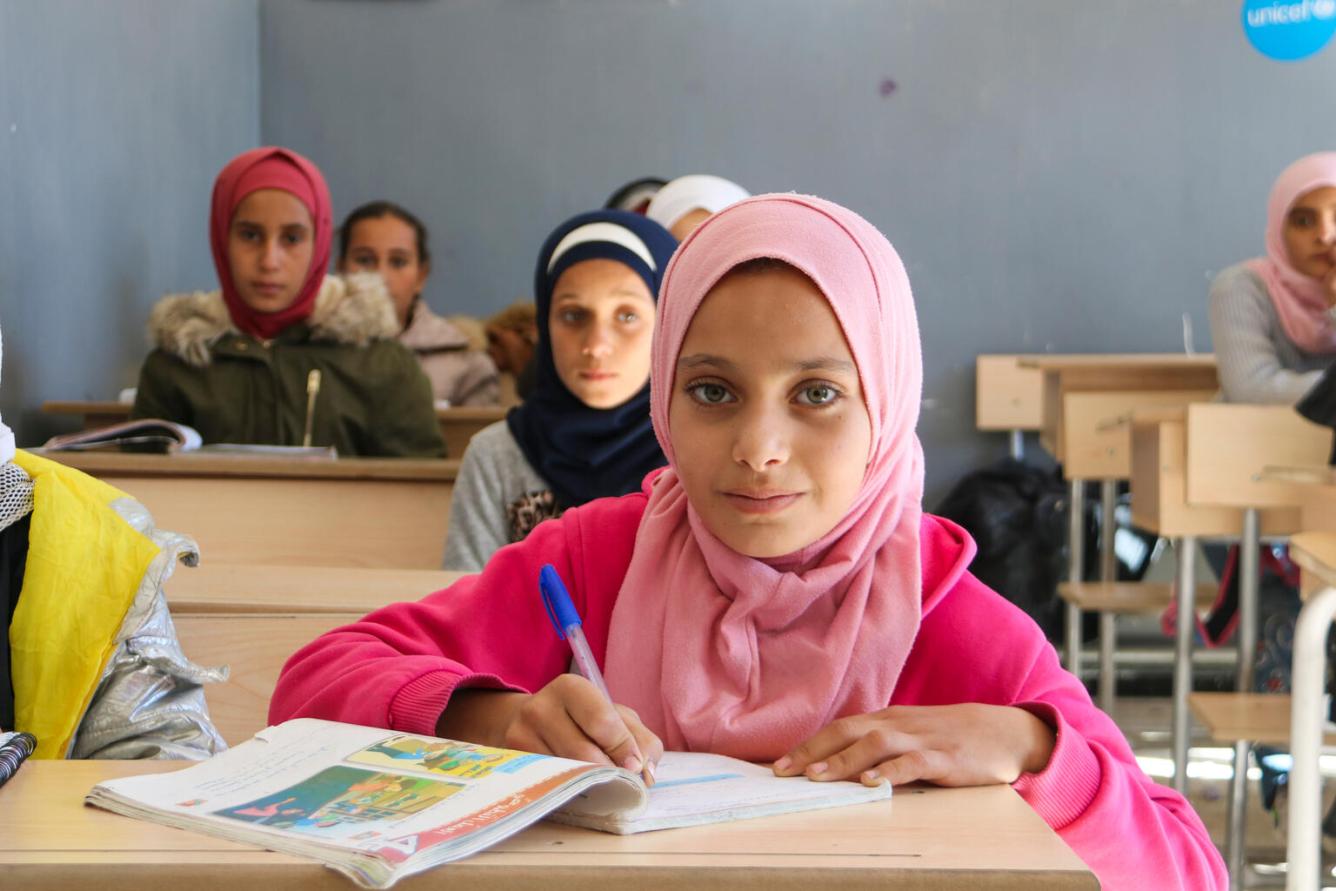
Reducing distance to school in rural Djibouti
For children living in rural areas, schools are often far from their home, and the safety risks in walking the long distance can limit their access to education. This is especially true for girls in places where street harassment or violence is prevalent. Parents who fear for their daughters’ safety may keep them from traveling outside their community.
One solution to this problem is building school dormitories where girls can live during the term. In rural Djibouti, UNICEF is building three new rural boarding schools in Danan, Waddi and Abaitou, each with approximately 15 classrooms, a canteen, dormitories, and water, hygiene and sanitation facilities.
This project aims to encourage schooling for rural girls by giving them access to quality facilities and improving their learning environments, making it safe for them to stay in school. Around 10,000 girls in rural areas will benefit from this project.

